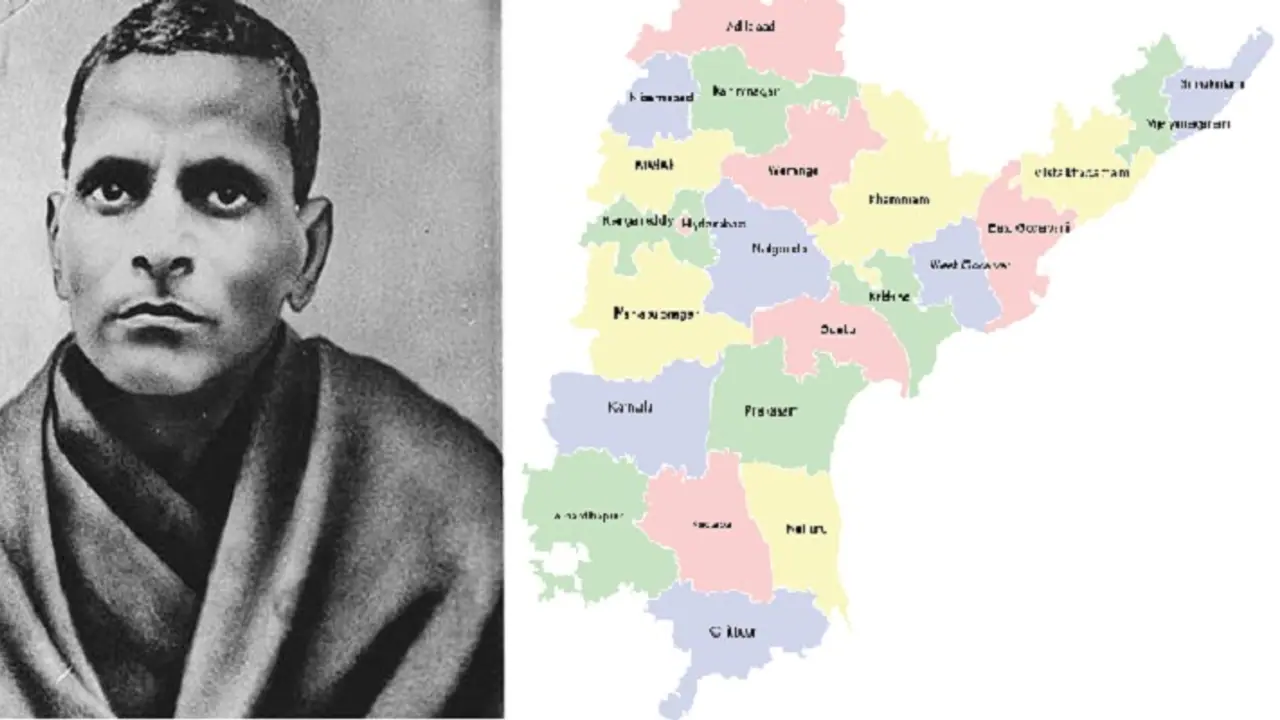The Madras presidency had Tamil, Telugu, Kannada, Malayalam and Oriya speakers. The most vocal of them in favour of a State based on language were the Teluguites.
Pre-independence India was a collection of 564 princely States and a major portion of the responsibility to integrate them into a nation fell on the shoulders of India's first Home Minister Sardar Vallabbhai Patel. However, it was Potti Sreeramulu's sacrifice that helped create States on linguistic basis in India.
The Madras presidency had Tamil, Telugu, Kannada, Malayalam and Oriya speakers. The most vocal of them in favour of a State based on language were the Teluguites.
After Sardar Patel's death in 1950, the responsibility fell on Prime Minister Jawaharlal Nehru. He abhorred the idea of dividing the nation on linguistic lines, but agreed to do so if there was a consensus.
Telugu was the second most spoken language and the Andhra Mahasabha had worked hard to cultivate a sense of identity among the Telugu-speaking people of the Madras Presidency.
Although Telugu-speaking kings had ruled much of the presidency, Teluguites claimed discrimination from Tamils. Telugu statehood supporters started fasting to have their demands met, but none was as effective as Sreeramulu.
Sreeramulu was born to Guravayya and Mahalakshmamma in Chennai. From a very young age, he was influenced by Mahatma Gandhi and his method of non-violent agitations.
Sreeramulu had joined the Great Indian Peninsular Railway, but after the death of his wife in 1927 when he was only 26, he resigned from his job and joined Sabarmati Ashram as a follower of Gandhi. He was active in the Indian independence movement and also worked for the upliftment of Harijans.
Post independence, Telugu leaders started agitating in Delhi with their demand for a separate state. Several Telugu-speaking citizens wanted the then Madras to be divided along River Cooum, the northern part for Andhra and the southern one to Tamil Nadu.
On May 22, 1952, Nehru told Parliament of how "for some years now our foremost efforts have been directed to the consolidation of India. Personally, I would look upon anything that did not help this process of consolidation as undesirable. Even though the formation of linguistic provinces may be desirable in some cases, this would obviously be the wrong time. When the right time comes, let us have them by all means," quoted The Hindu, showing that Nehru was being evasive about creating States on linguistic basis.
This upset several including Sreeramulu who began his fast on October 19, 1952, in Madras for a separate Andhra State. Prime Minister Nehru had written to Chief Minister of Tamil Nadu C Rajagopalachari saying, "Some kind of fast is going on for the Andhra province and I get frantic telegrams. I am totally unmoved by this and I propose to ignore it completely." This was on December 3, six weeks into Sreeramulu's fast.
Nehru perhaps could not estimate the conviction of Sreeramulu and believed the man would break. But Sreeramulu continued his fast until he died on the night of 15 December, 1952. The widespread agitations which also descended into violence is something that Nehru did not expect. Thousands gathered at Sreeramulu's funeral procession. Government offices were attacked and trains were defaced. Police had to open fire at several places to keep the situation under control.
Nehru finally relented and in March 1953, the Telugu districts of Madras presidency were identified to constitute the State of Andhra Pradesh.
